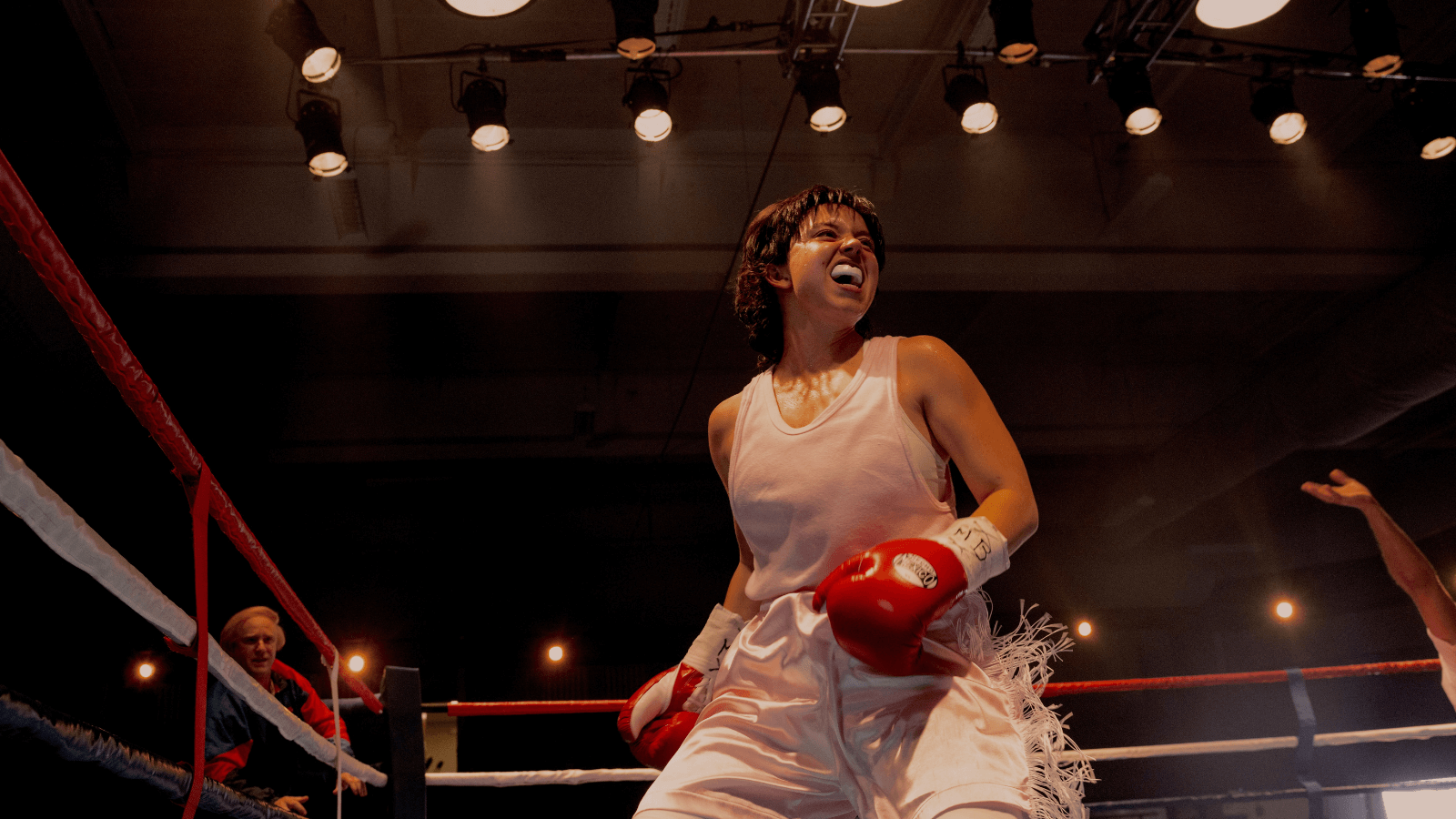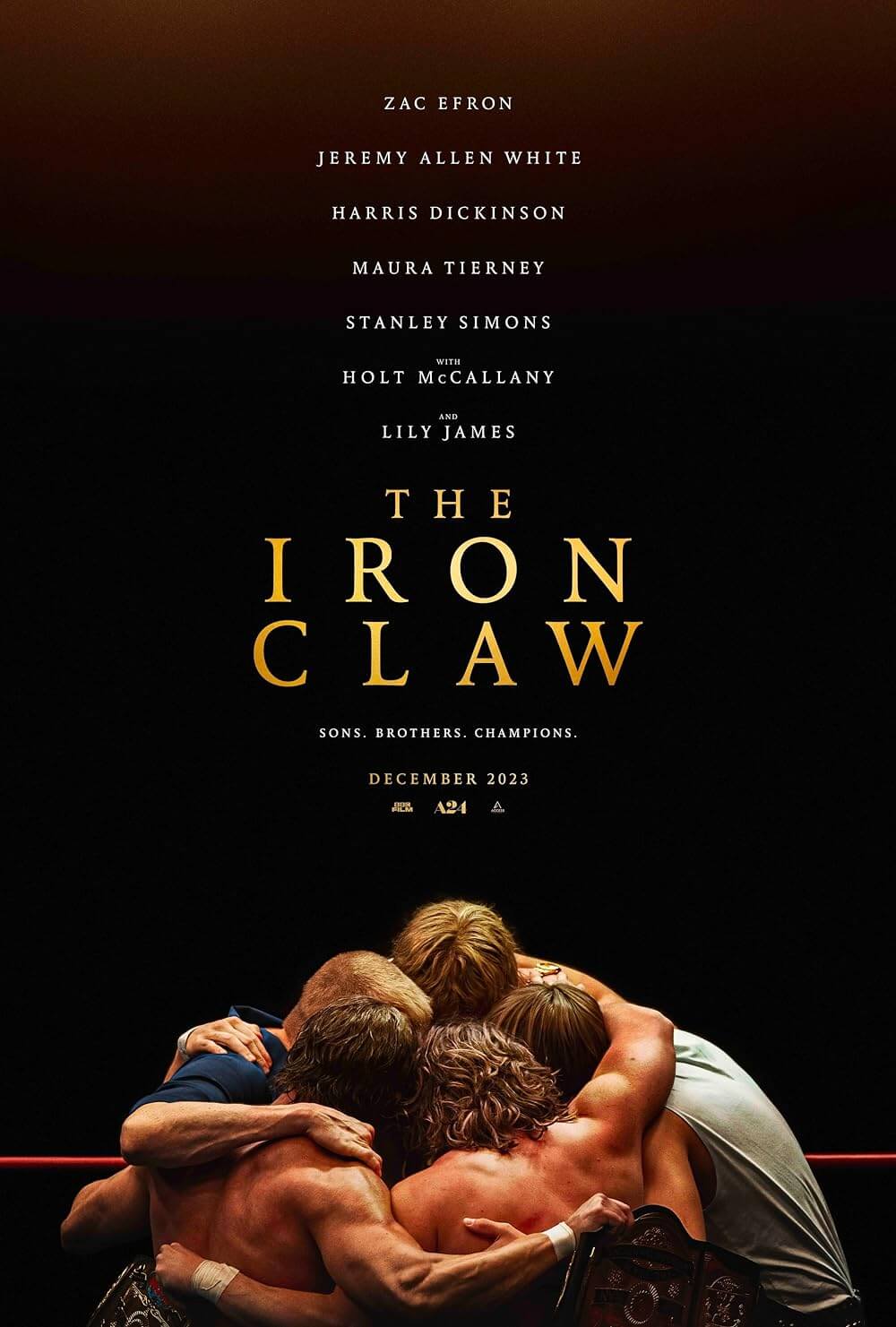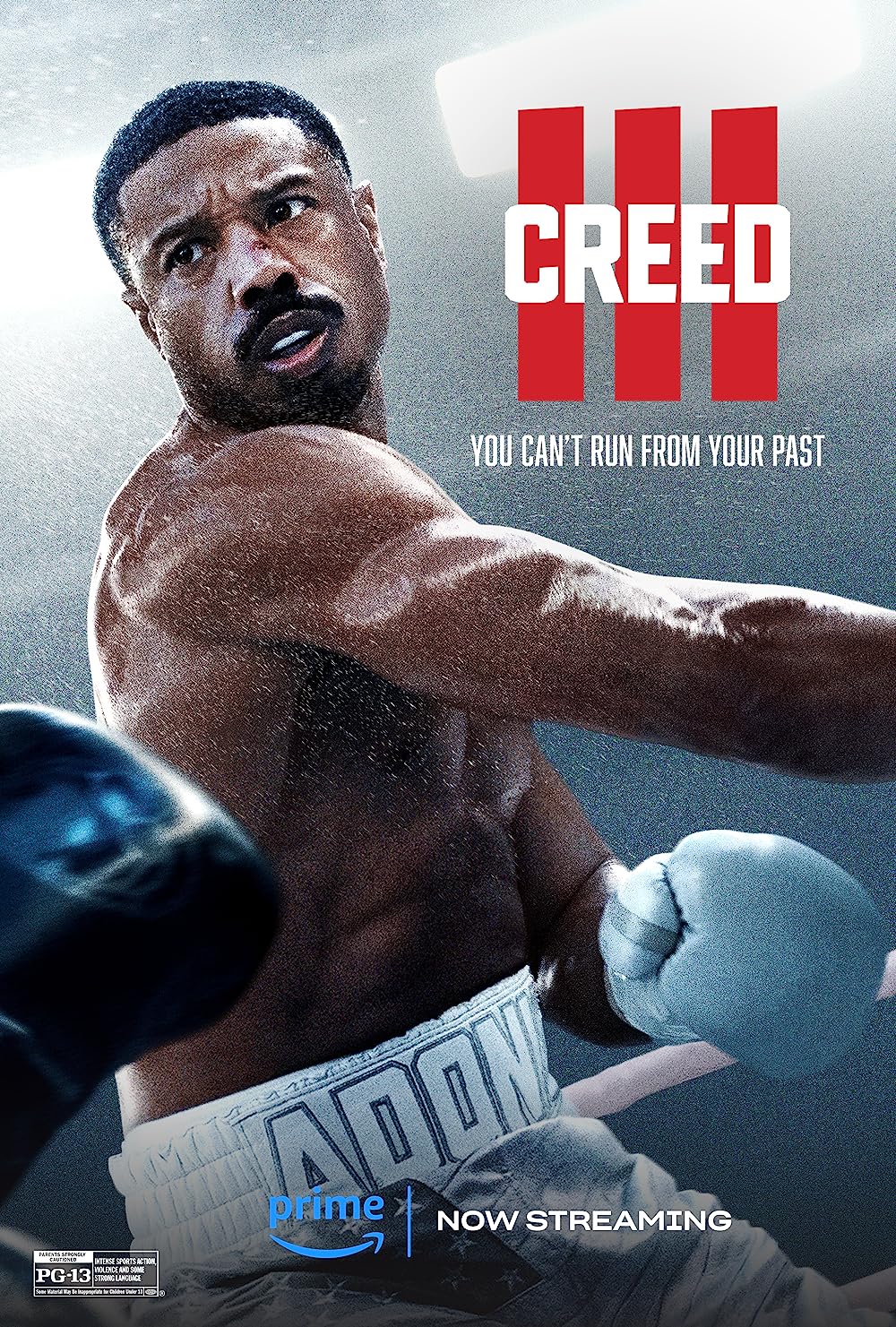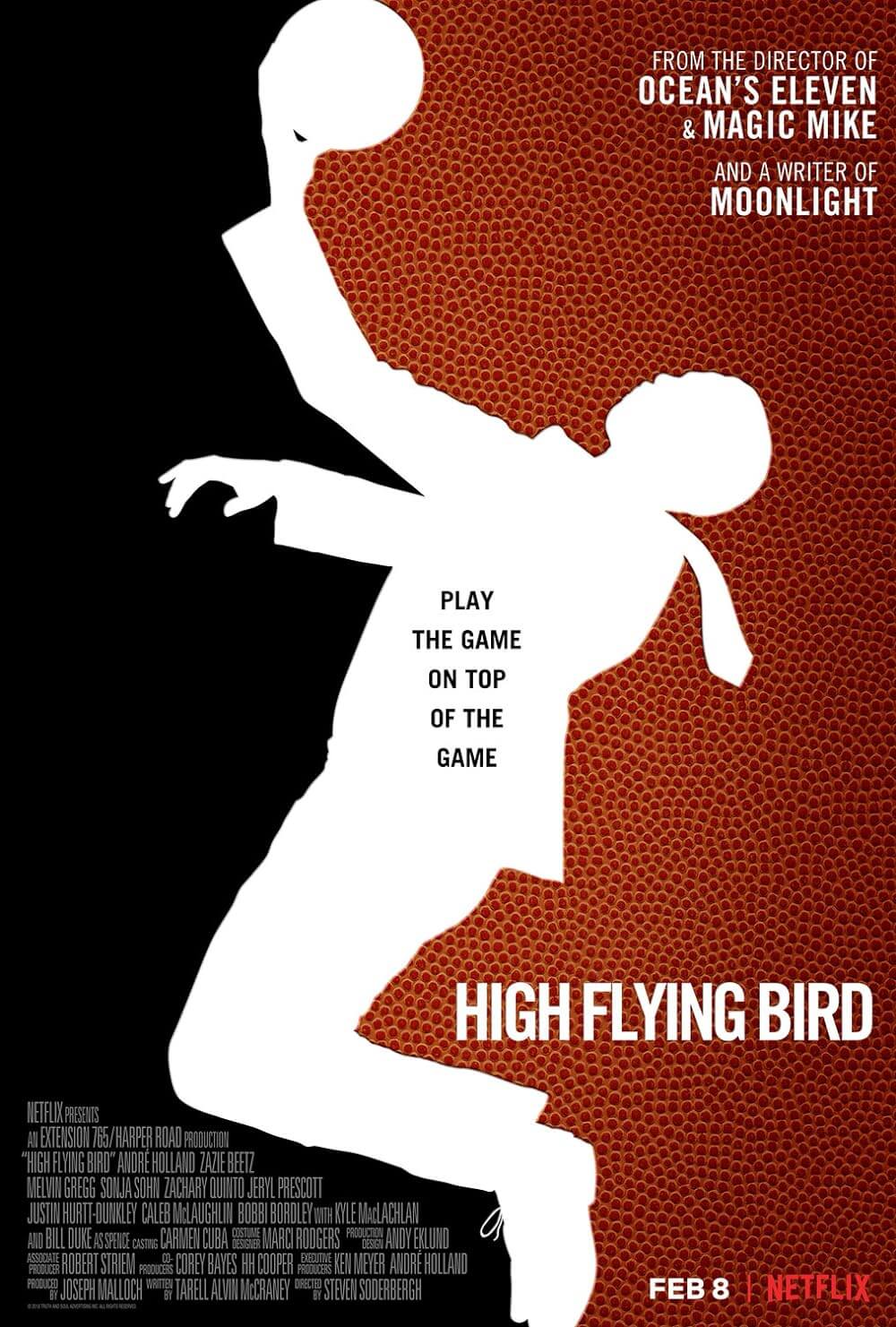
Christy
By Brian Eggert |
With Christy, David Michôd directs the story of Christy Martin, who single-handedly popularized female boxing from the early 1990s to the 2000s under the nickname coined by huckster-promoter Don King: “The Coal Miner’s Daughter.” Sydney Sweeney plays her in a performance that many critics have hailed as transformative. However, underneath frumpy clothes and an unconvincing wig, Sweeney never disappears into the role—it’s not, say, Linda Hamilton changing her physique to become a badass for Terminator 2: Judgment Day (1991). And as the standard sports movie template descends into a dark account of drugs and domestic abuse, Christy bears a curious similarity to Benny Safdie’s The Smashing Machine, another underwhelming sports biopic this year with a showy performance at the center. Produced in part by Sweeney, the whole production screams Oscar bait in the most cloyingly pedestrian way.
Raised in West Virginia, Christy, a sporto and closeted lesbian, clashes with her conservative, disapproving parents (Merritt Wever, Ethan Embry) who want her to see a priest to “get her straightened out.” Instead, she competes in an amateur boxing match “for fun,” with little knowledge of the sport: “All I knew was that I had to beat the shit outta that bitch before she beat me,” she remarks after her win. Soon, she meets a potential trainer, Jim (Ben Foster), whose creep factor is off the charts. Despite his being decades older and saddled with a beer belly and bad combover, Christy falls for him, ignoring his possessiveness and virulent anti-gay views while buying into his claims that he will make her “the greatest female fighter in the world.” Her mother certainly approves, believing Jim is her ticket to a “normal life.” Meanwhile, the viewer sees all the warning signs and awaits the inevitable fallout.
Michôd and Mirrah Foulkes wrote Christy, and they adhere to a typical sports movie structure, charting Christy’s meteoric rise to fame while ignoring the real boxer’s early-career losses and draws in favor of presenting a seemingly flawless winning streak. Cue the typical training and fight montages, here set to Young MC’s “Bust a Move.” While building a name for her, Jim goes full Vertigo (1958) and tells Christy to cut her hair so it’s not so “butch” and puts her in an all-pink getup so she looks “cute.” Before long, they sleep together, marry, move to Florida (where else?), and present themselves as an ambitious Average American couple. “I’m just a regular wife who happens to knock people out for a living,” Christy claims. She also shuts down any feminist take on her success with the press, pronouncing she doesn’t care about advancing other women or getting more money for them; she only cares about herself and her own success.

Christy’s brainwashing by Jim and her parents grows even more twisted when boxing doesn’t pay the bills, prompting him to arrange seedy hotel room fights for her with a 300-pound man for cash, and later, to record porn tapes with her for the underground market. That’s even after she becomes the first woman to fight on Pay-Per-View—a sequence shot in slow-mo and set to choral music, striking an ill-fitting tone compared to the rest of the movie. Additionally, very few of the boxing matches impress. They’re sloppily choreographed and shot by cinematographer Germain McMicking, who doesn’t bring any distinct visual flair to the proceedings. All the while, Christy is surrounded by people who don’t stand up for her, regardless of witnessing what’s obviously an abusive relationship. Her mother dismisses her claims that Jim has become violent (“You sound crazy,” she tells her daughter, in a maddening scene); she’s more concerned about keeping up appearances. Only Christy’s onetime opponent and later training partner—and later still, wife—Lisa Holewyne (Katy O’Brian) can see Christy’s true self enough to question the pretense.
“You make it real easy for people to dislike you,” Lisa observes. Indeed, she likes to talk smack in front of the press, calling out Lisa as a lesbian while passing as straight. That’s part of what makes her a success: performing for the camera. However, she doesn’t exactly endear herself to the viewer; I struggled to get on Christy’s side, which made the 135-minute runtime feel particularly long, especially in the repetitive second half. Although Jim’s domestic abuse, not only at home but also in the ring while sparring, gives us no choice but to empathize with her. Her only hope seems to be her former high school girlfriend, Rosie (Jess Gabor), who comes in and out of Christy’s life when the story needs her. Soon, drugs enter the mix, and the increasingly paranoid Jim reacts with a brutal attack that brings some finality to their marriage.
Sweeney once again never convinces in her performance, which is becoming a theme in her work, looking at last year’s Immaculate and this year’s Eden. Foster and Wever fare better, but like Sweeney, they’re all wearing equally silly wigs that render their performances unintentionally funny. Similar to The Smashing Machine, which was based on an earlier documentary and sanitized in its dramatization, viewers might be better off watching the documentary on this subject. Released on Netflix, Untold: Deal with the Devil (2021) tells Martin’s complex story without the typical overdone sports movie structure. Michôd, once a promising Australian filmmaker behind Animal Kingdom (2010) and The Rover (2014), appears to have lost his edge in recent years, starting with War Machine (2017) and The King (2019). With Christy, his approach is annoyingly stuffed with big speeches and dialogue that sounds like a Hallmark movie, and its generic, familiar quality never gives way to something worth the hype.

Thank You for Supporting Independent Film Criticism
If the work on DFR has added something meaningful to your love of movies, please consider supporting it.
Here are a few ways to show your support: make a one-time donation, join DFR’s Patreon for access to exclusive writing, or show your support in other ways.
Your contribution helps keep this site running independently. However you choose to support the site, please know that it’s appreciated.
Thank you for reading, and for making this work possible.
Brian Eggert | Critic, Founder
Deep Focus Review







